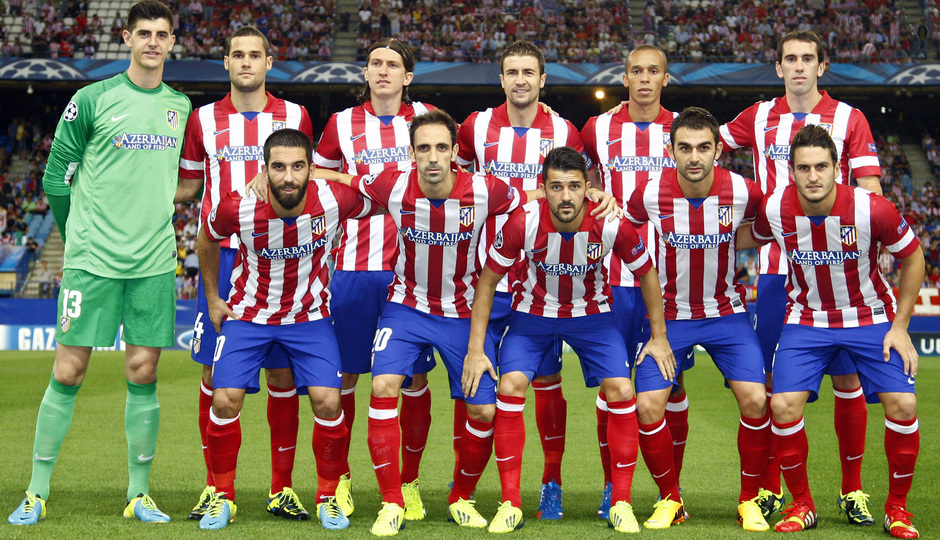
The is a wonderful idiom that I have only heard during football analysis - it speaks of "the whole being greater than the sum of its parts." This captures the essence of what the word "team" or "community" is all about. It is about the collective, to such an extent that the individual parts can no longer be understood if divorced from the whole. This is a glorious truth that "competitions" such as the
Ballon d'Or are intent on destroying.
For those who have the fortune of being unaware of the Ballon d'Or, it is an award given to an individual player in football who is thought to be "the best" in a given year. Votes from coaches, captains, and journalists are totted up in what is at best a quasi-democratic system. But it is not the voting system I have a problem with. It is the very concept of the thing, which is little more than a marketing ploy that corrupts the imaginations of young children all over the world, and sparks interminable debates among grown-ups who still think like children. I, regretfully, have been among their number.

To illustrate the corrupting power of this absurd competition, there was an argument put forward a few years ago that said that "Messi is only as good as he looks because he plays with Xav and Iniesta." In other words, the collaboration between Messi, Xavi, and Iniesta is something of a disguise. The "true" Messi is the one that is in complete isolation from his team. Or to put the matter more generally, the real worth of a player can only measured when he is seen as a lone individual. It should go without saying - though unfortunately it doesn't - that such a notion is detrimental to the sport of football.

The competition also produces other absurdities. For example, Messi's most "successful" individual seasons have produced Barcelona's least successful seasons in recent years. This, I dare say, is not a coincidence. It is what happens when an individual transcends a collective. The part - by some made-up criteria - may improve, but the team diminishes. The moment it became clear that Messi was not reliant on Xavi and Iniesta for his greatness was also the moment that Barcelona ceased to be a great team. That Messi was never able to reproduce his form for Argentina should never have been a stick with which to beat him. It should have made us realise that it is the team is what matters, and that the most talented players are at their best when their part functions in a whole.

Of course, when the whole is ignored then it is the individual components that matter the most. But that goes against the ethos of a team sport. Moreover, it usually means that you don't win anything. The days of the lone individual dragging his team to victory are gone, if they ever existed at all. At the highest level, the sum of parts that is greater than the whole will lose to the whole that is greater than the some of its parts. Atletico Madrid's recent victories over Real Madrid are examples of this truth.
One final problem with the Ballon d'Or is the criteria employed. Is it goals that matter? If so, then surely Van Nistelrooy should have been a Ballon d'Or winner in 2003. Is it trophies? Then surely one of Inter's players should have won it in 2010. Is it the level of excitement a player causes when he has the ball at his feet? Then how did Cannavaro win it in 2006? The competition is rife with inconsistency.

The Barcelona of 2009-2012 will go down in history as one of the best teams ever to play the sport. Pedro was a vital component of that team. He was never shortlisted for the Ballon d'Or (as far as I'm aware). He certainly never finished above Ronaldo. Yet it is more than arguable to suggest that Barcelona would have been an inferior team if they had Ronaldo instead of Pedro. The sum of their parts would have been greater, perhaps, but the whole would have been lessened. Pedro's tactical discipline, his pressing, his movement, and his defensive diligence were what was required of him. In no universe is Pedro considered a "better" player than Ronaldo, but that just shows you the unreasonableness of judging individuals as isolated individuals.

The only individuals who should be judged as individuals in football are the managers. It is their responsibility to create a team, to form a whole that transcends its parts. That few accomplish this is a great shame.
* If you care to read a much more reasoned defence of this position, take a look at a
Jonathan Wilson article from the beginning of this year, from which I have stolen most of my thoughts.





